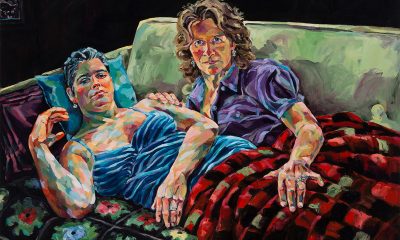Arts & Entertainment
Finding ‘Follies’
Gay actress says role feels conceived for her
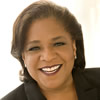
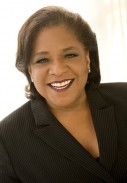
Terri White feels she finally grew into her ‘Follies’ role and is thrilled to be in the current Kennedy Center production. (Photo courtesy of the Kennedy Center)
‘Follies’
Through June 19
The Kennedy Center
$45-$150
202-467-4600
www.kennedy-center.org
Throughout her long career in show business, Terri White has certainly sung her share of Stephen Sondheim tunes in nightclubs and piano bars, but it’s not until now that she is actually tackling a full-fledged role in one of his musicals. As has-been dancer Stella Deems in Sondheim’s nostalgic backstage story “Follies” (currently enjoying a much anticipated run at the Kennedy Center), White, who is also gay, feels she’s found the part of a lifetime.
“I first saw ‘Follies’ when it opened on Broadway in 1971,” says White, 62. “And over the years I’ve sort of grown into the part.” Not only do White and her character both share roots in theater of a different era, they also know what it means to step away from show business and find respite in sunny Florida. “It’s uncanny,” White says. “It’s as if Stella was written especially for me. I’ve just had to wait 40 years to be old enough to give it a try.”
Considered among the best of Sondheim and James Goldman’s collaborations, “Follies” is a hauntingly beautiful tribute to lavish revues and increasingly complicated lives. Gathered for a final goodbye in a once grand New York theater on the eve of its destruction, a group of former showgirls reminisce about the glamorous, good old days and share where their post-chorine lives have taken them. On top of Goldman’s rich libretto, the show boasts a memorable hit laden score: “Broadway Baby,” “I’m Still Here,” “Too Many Mornings,” “Could I Leave You?” and “Losing My Mind.”
With a multi-million dollar budget, a 28-piece orchestra, and a large cast including megawatt dames like Bernadette Peters, Elaine Page and Linda Lavin, the Kennedy Center’s “Follies” (staged by gay director Eric Schaeffer) is produced big as it should be, says White. “And there are no divas here,” she adds. “It’s a brilliantly cast group of professionals who’ve come not only to work, but also to enjoy ourselves while we’re here. I respect all the ladies and relish the opportunity to share the stage with them.”
As a kid, White was part of the family act the White Quartet, and travelled the South and the Midwest performing on the TOBA — Theater Owners Booking Association, or more familiarly known to performers as Tough on Black Asses — circuit.
“My father was a crooner and a hoofer. He taught me to tap dance and put me on stage when I was 8. Times were often tough. Sometimes managers didn’t pay us and we’d get very low on funds,” she says. “I’d glue bottle caps to the soles of my shoes and tap dance on a wooden crate to raise some change for sandwiches and gas to get us to the next city for a gig.”
During those early years on the road, White watched as theaters turned exclusively into rock venues, movie houses or entirely disappeared. In the 1960s, she arrived in New York City as a dancer who sang, but as she grew older the physical challenges of dance prompted her to change her focus to singing. She still dances however. In fact, White’s Stella is perhaps the only one ever to tap dance throughout her big production number “Who’s That Woman?”
White’s Broadway and off-Broadway experience includes Joice Heth in “Barnum,” “Ain’t Misbehavin’” as Neal, gay director/choreographer Tommy Tune’s “The Club” (Obie Award 1976) in which she literally tap danced from her entrance to her exit, “Nunsense,” “Stepping Out” at Radio City with Liza Minnelli, “Chicago,” and the recent revival of “Finian’s Rainbow.”
Despite her big talent, White has known lulls in her career. After appearing in Tony Award-winning “Barnum” on Broadway in 1980, White was unable to find similar gigs for eight years. “I was effectively blacklisted for being gay,” she says. “There were a lot of gay men in the theater, but you didn’t see a lot of openly gay women performing on Broadway then or now.”
In 2008, White lost her apartment and slept in Manhattan’s Washington Square Park for three months. With the help of friends she found a signing gig in Key West, Fla., where she met her wife and business partner Donna Barnett. A year later the couple was celebrated a commitment ceremony on the stage of the St. James Theater where White was playing in “Finnian’s Rainbow.” Shortly thereafter, they were legally married in nearby Connecticut.
“For now,” White says, “I’m happy playing this incredible part Stella in ‘Follies.’ If the show goes on to Broadway, my wife and I will follow. If not it’s back to Key West to enjoy some gorgeous sunsets. That’s the plan.”
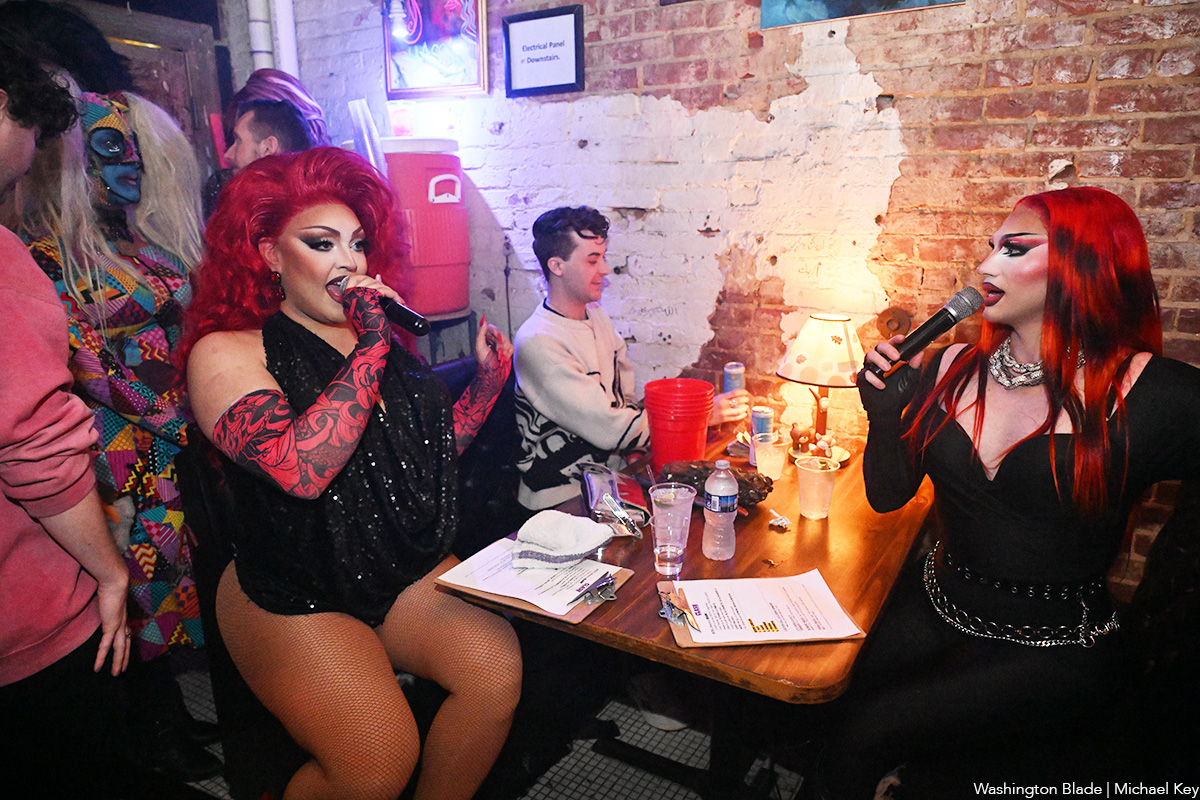
Crimsyn and Tatianna hosted the new weekly drag show Clash at Trade (1410 14th Street, N.W.) on Feb. 14, 2026. Performers included Aave, Crimsyn, Desiree Dik, and Tatianna.
(Washington Blade photos by Michael Key)
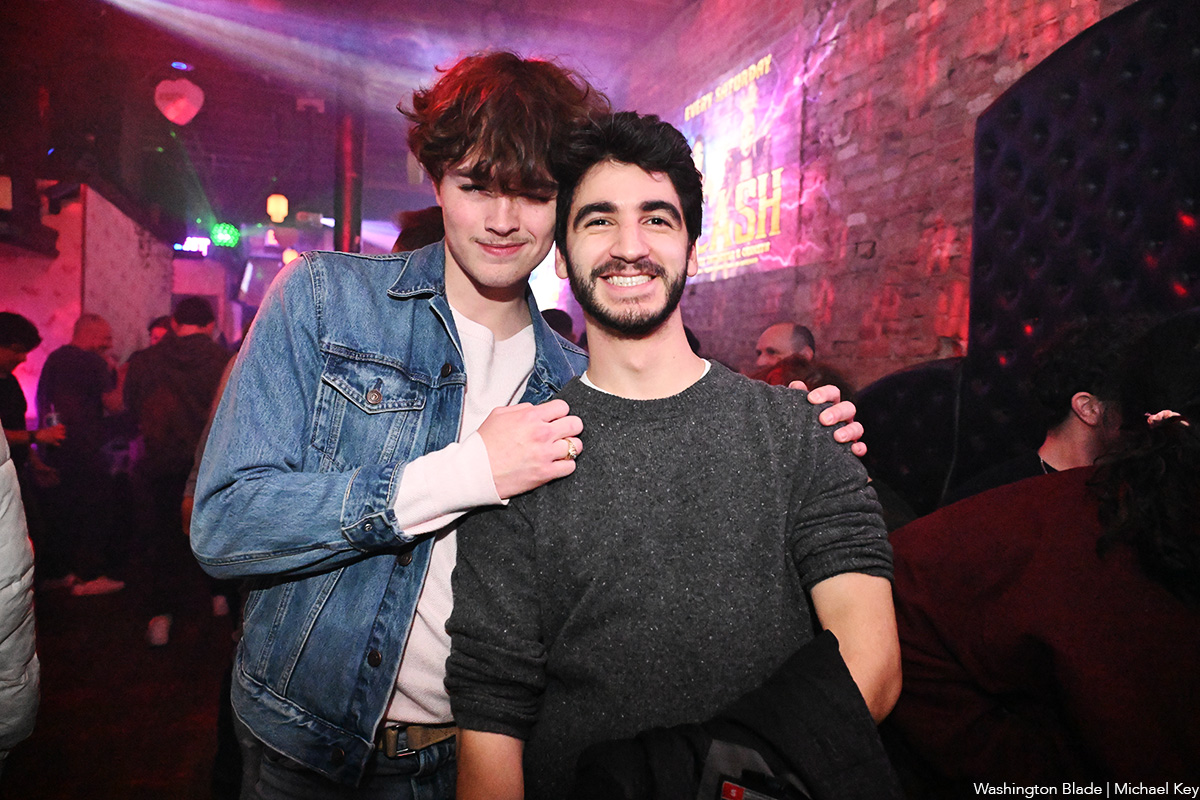
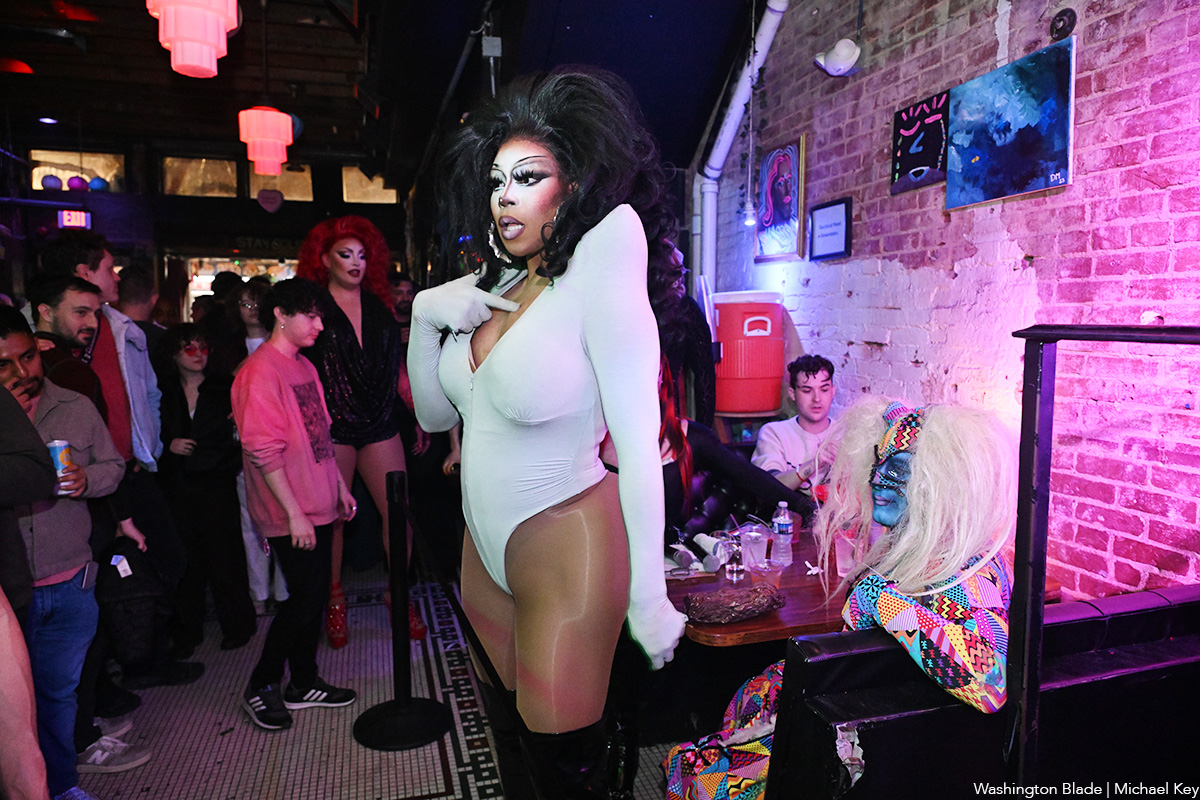
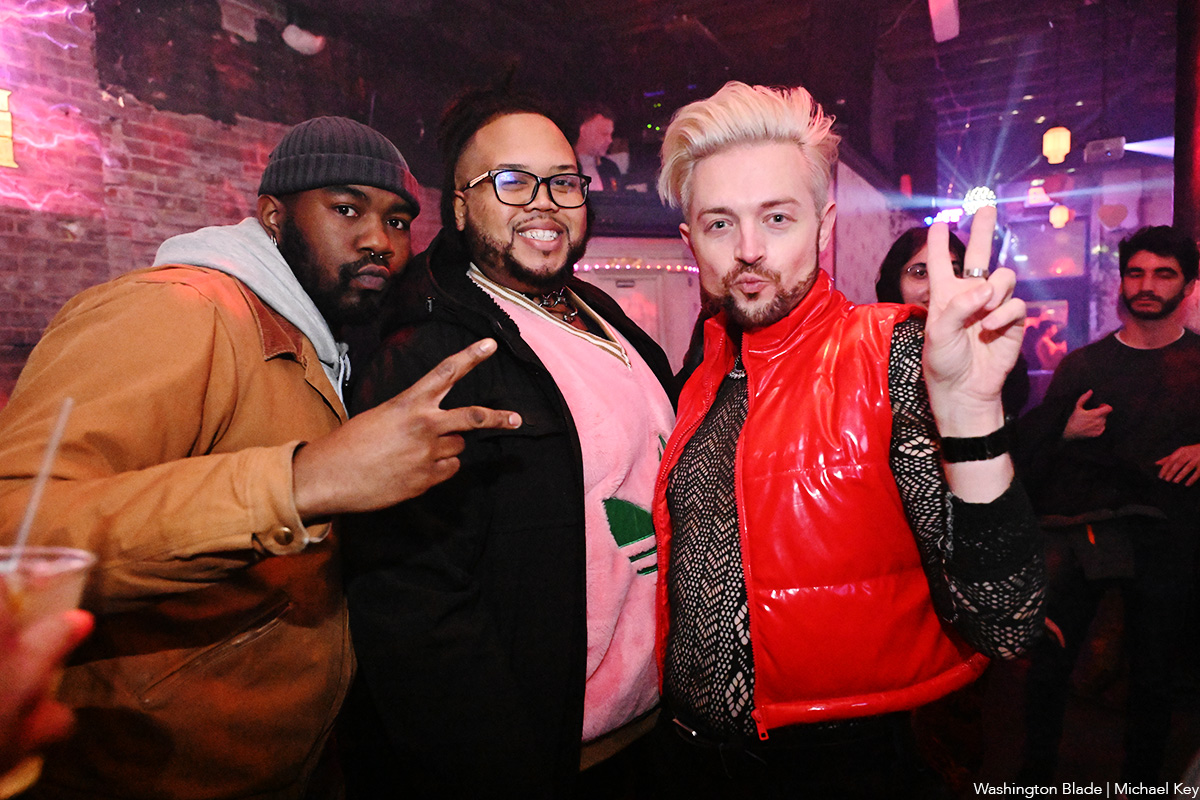
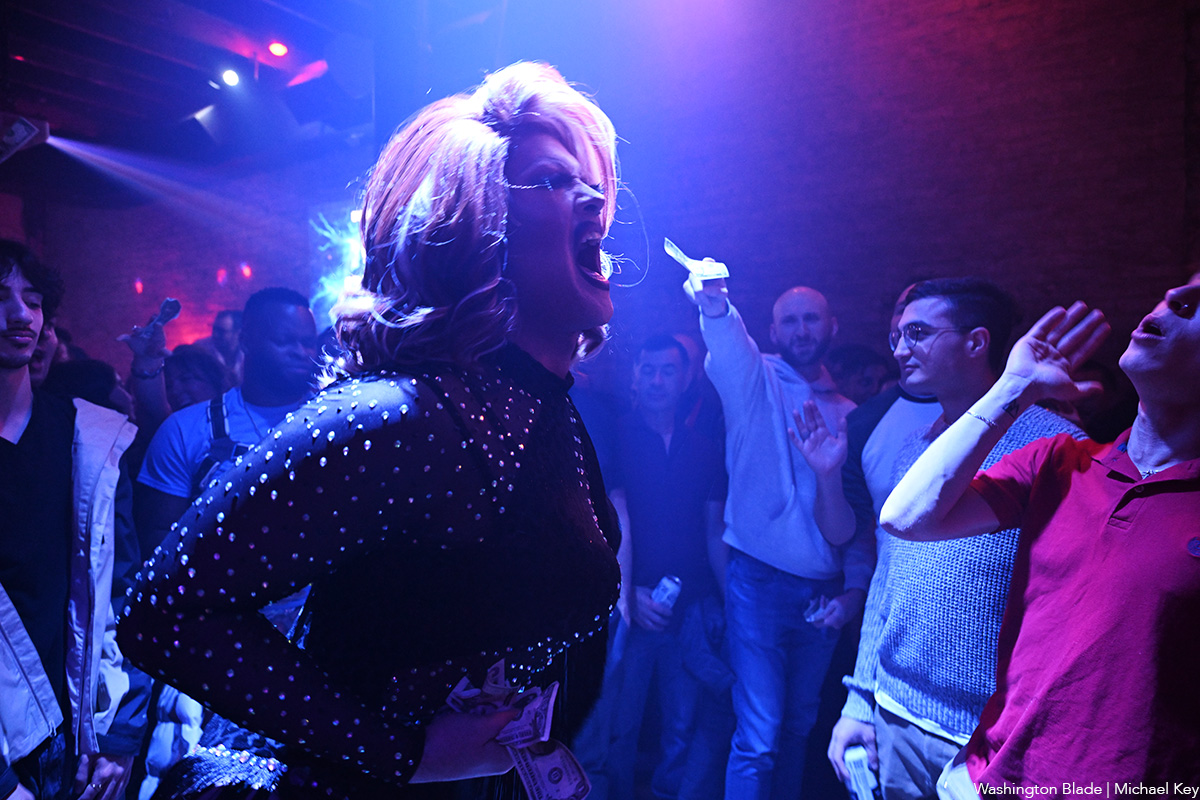
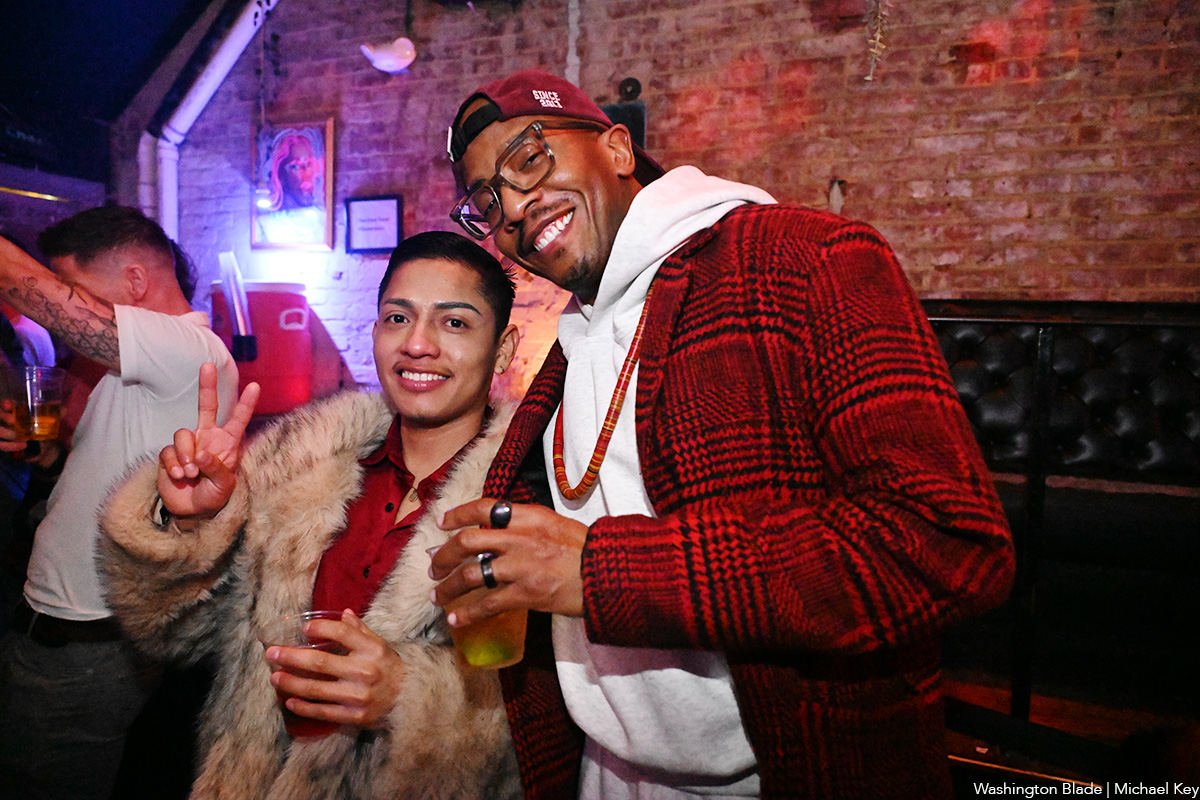
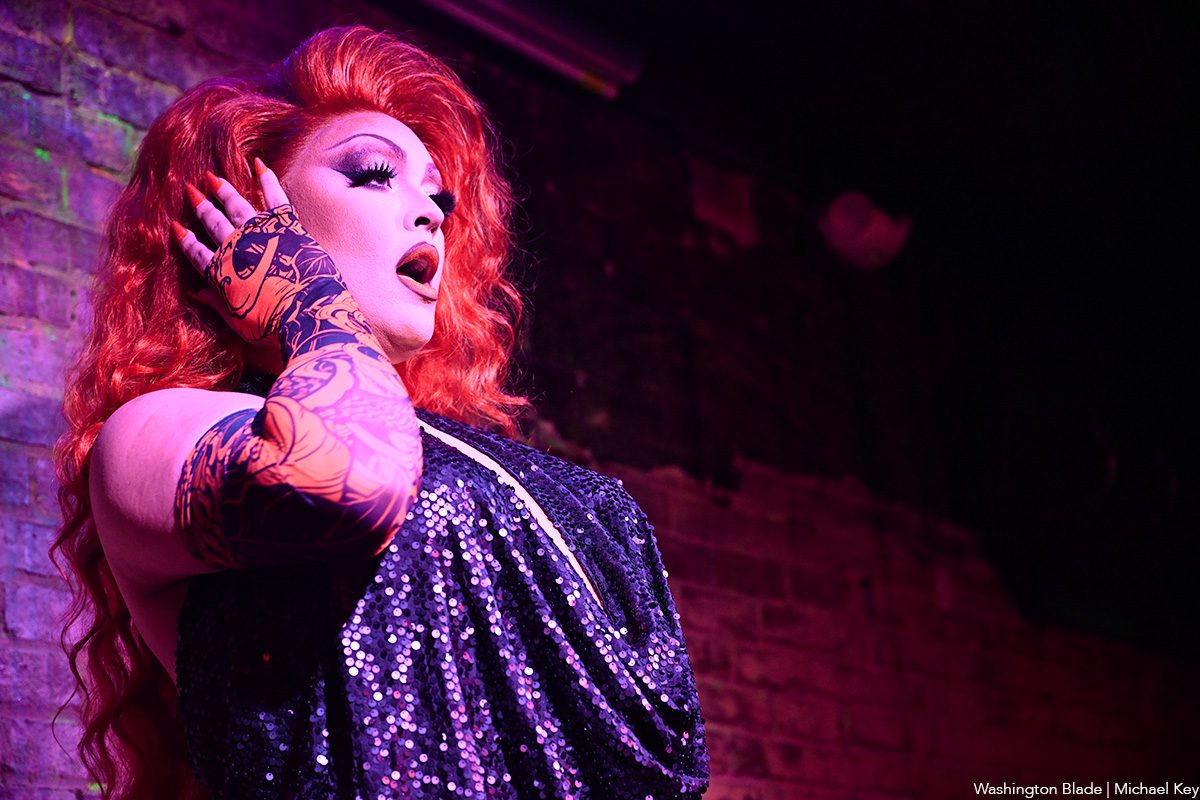
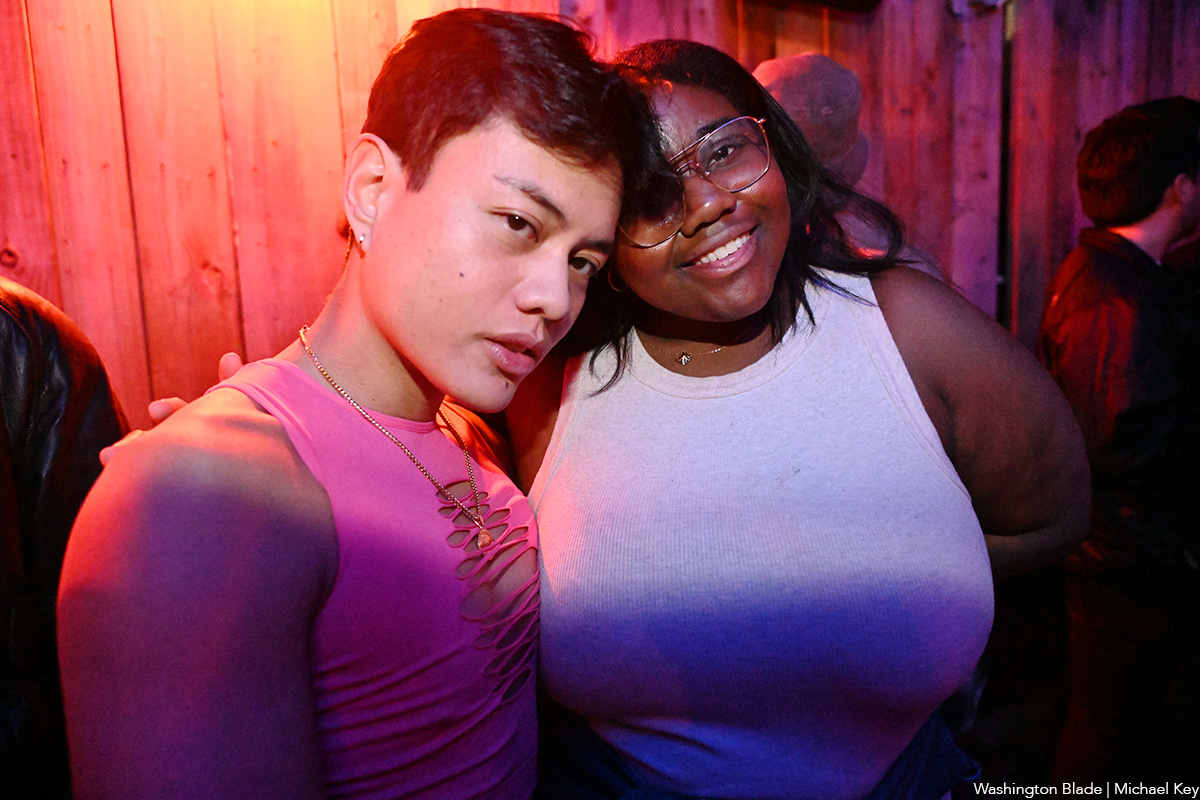
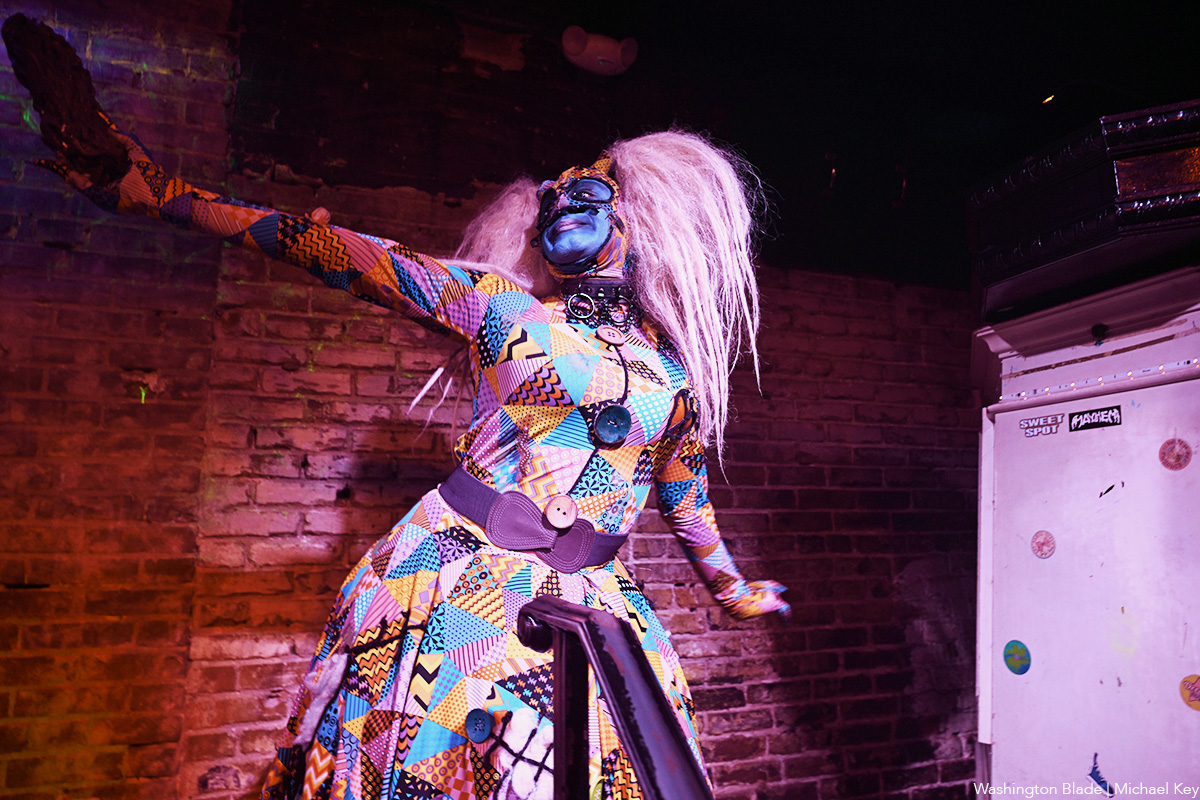
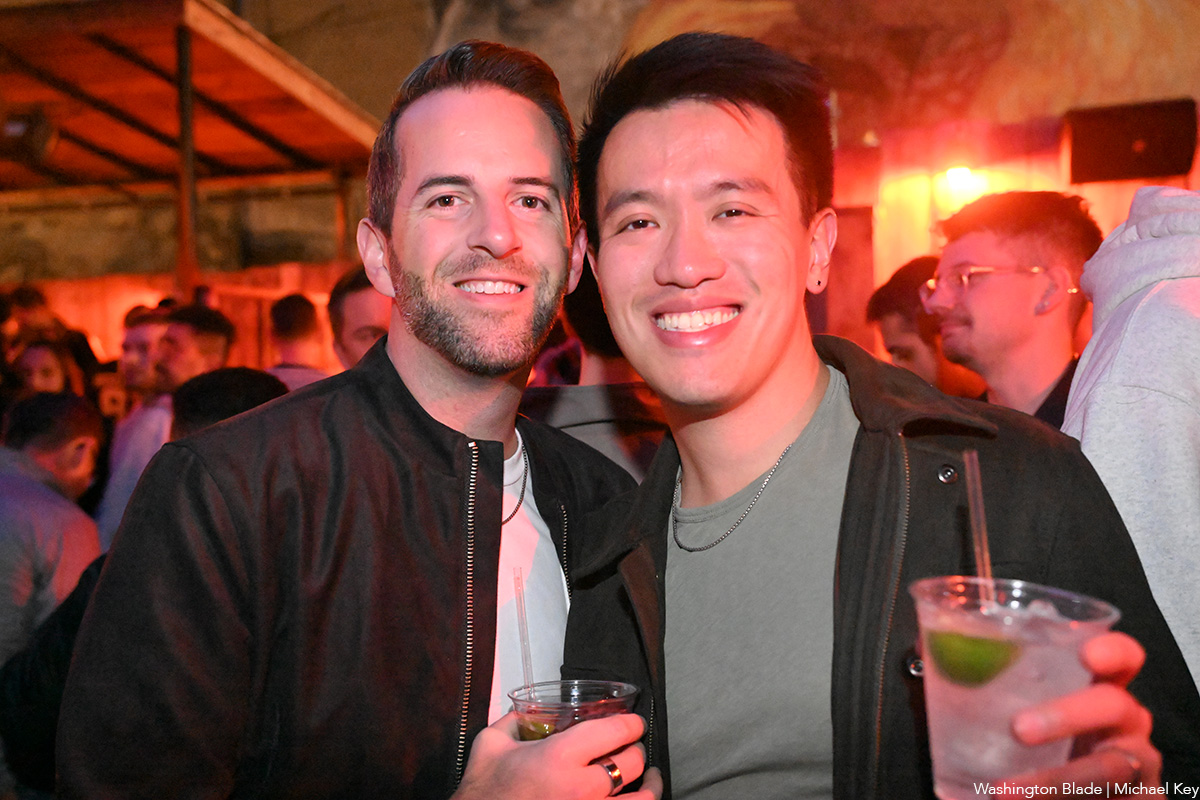
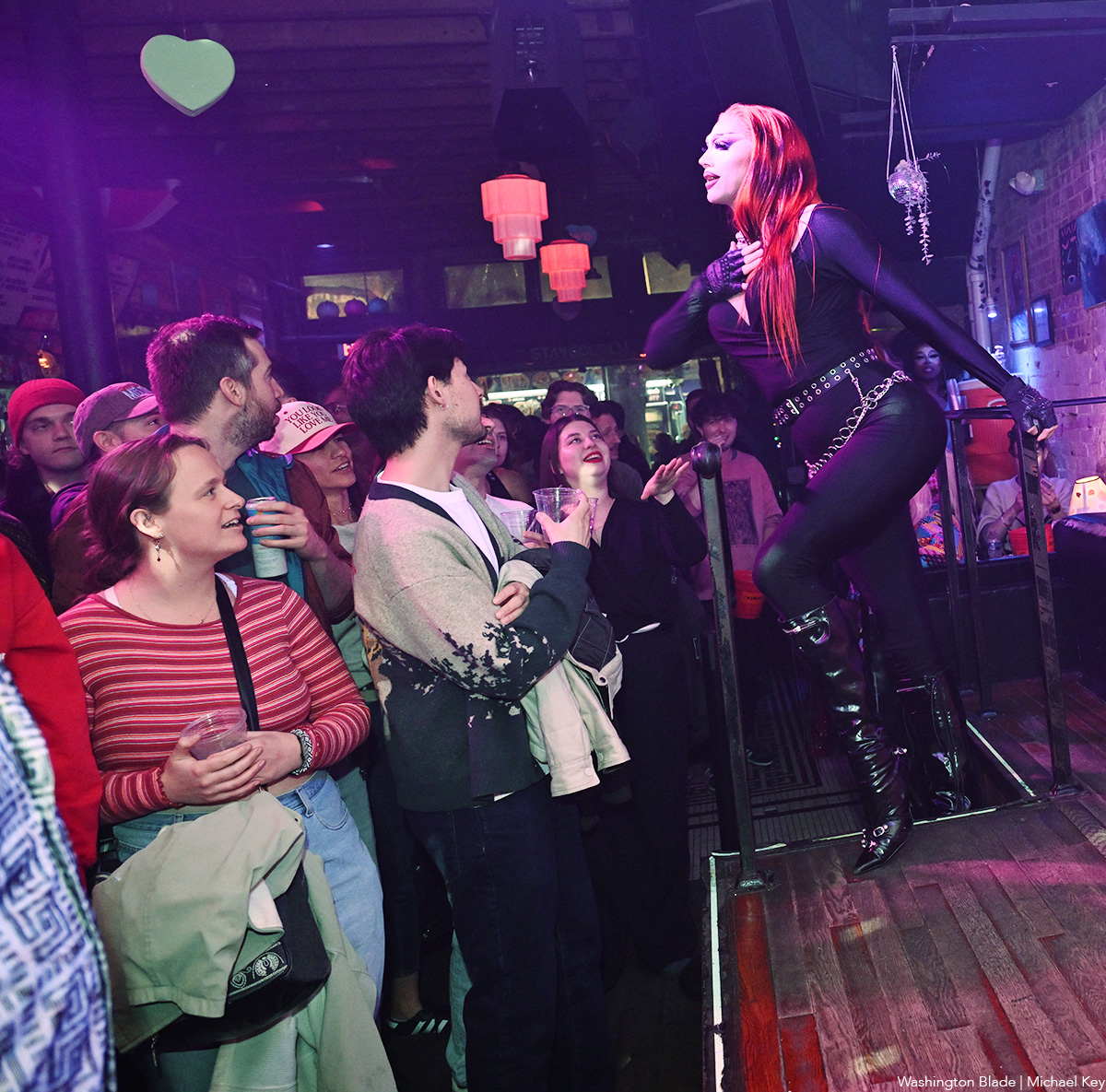
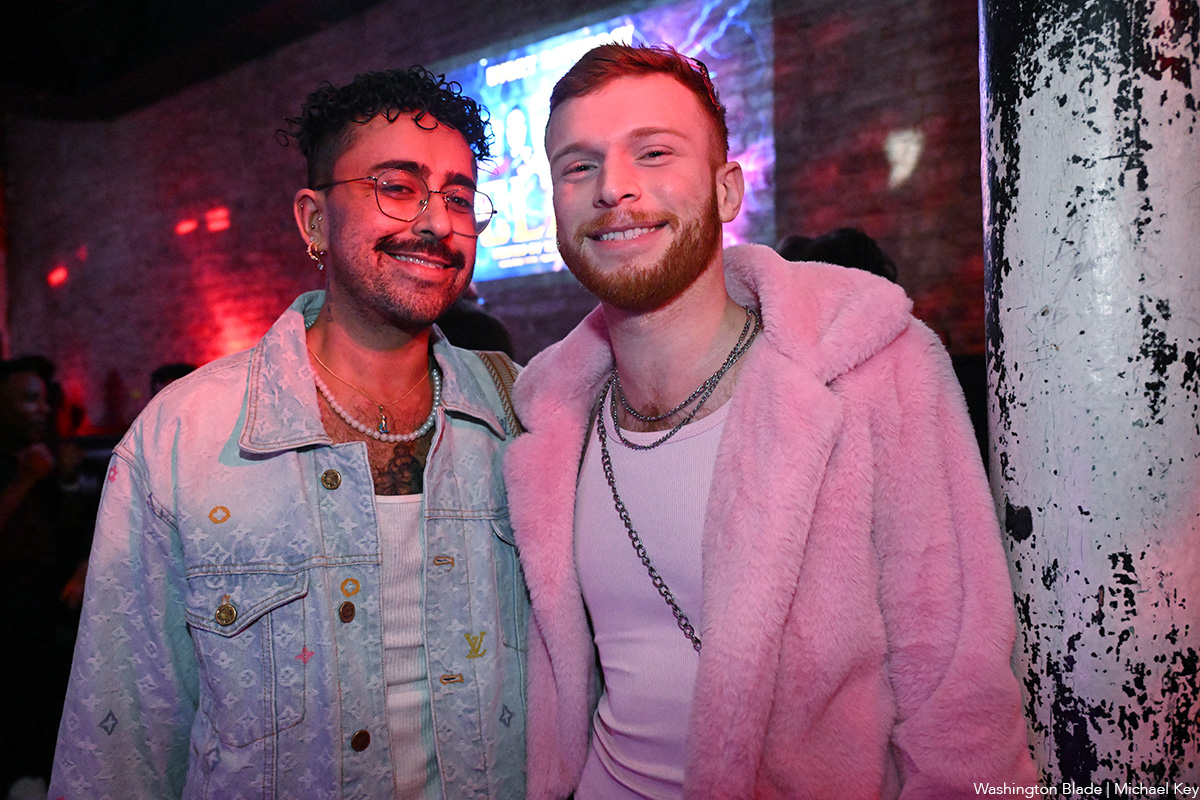
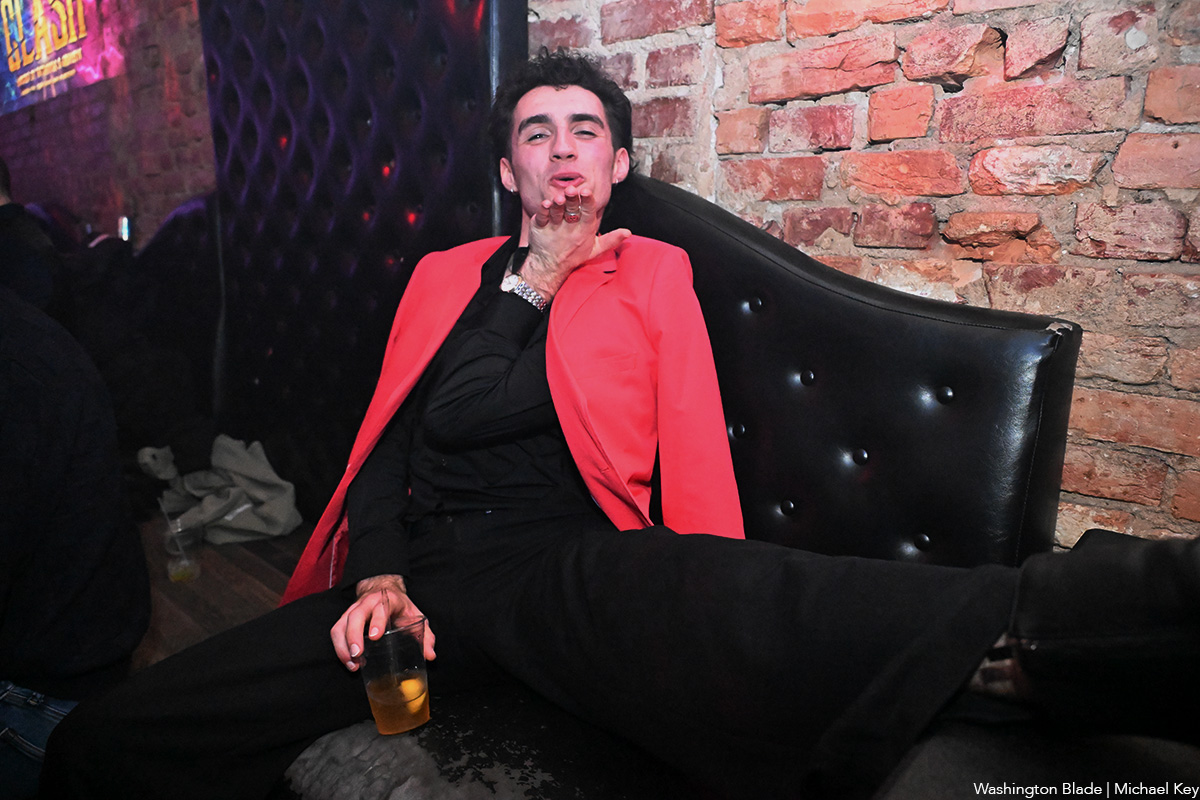
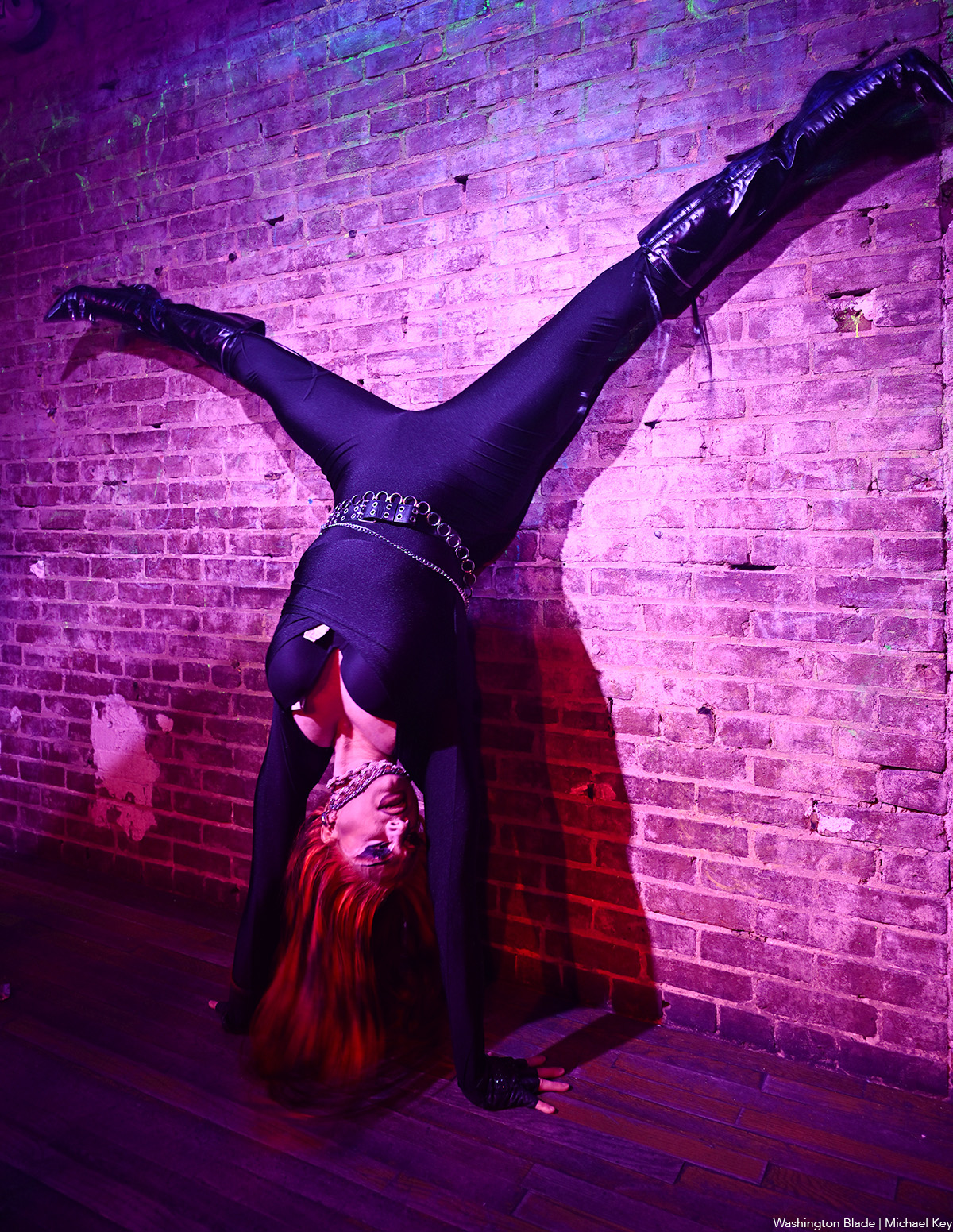
Theater
Magic is happening for Round House’s out stage manager
Carrie Edick talks long hours, intricacies of ‘Nothing Up My Sleeve’

‘Nothing Up My Sleeve’
Through March 15
Round House Theatre
4545 East-West Highway
Bethesda, Md. 20814
Tickets start at $50
Roundhousetheatre.org
Magic is happening for out stage manager Carrie Edick.
Working on Round House Theatre’s production of “Nothing Up My Sleeve,” Edick quickly learned the ways of magicians, their tricks, and all about the code of honor among those who are privy to their secrets.
The trick-filled, one-man show starring master illusionist Dendy and staged by celebrated director Aaron Posner, is part exciting magic act and part deeply personal journey. The new work promises “captivating storytelling, audience interaction, jaw-dropping tricks, and mind-bending surprises.”
Early in rehearsals, there was talk of signing a non-disclosure agreement (NDA) for production assistants. It didn’t happen, and it wasn’t necessary, explains Edick, 26. “By not having an NDA, Dendy shows a lot of trust in us, and that makes me want to keep the secrets even more.
“Magic is Dendy’s livelihood. He’s sharing a lot and trusting a lot; in return we do the best we can to support him and a large part of that includes keeping his secrets.”
As a production assistant (think assistant stage manager), Edick strives to make things move as smoothly as possible. While she acknowledges perfection is impossible and theater is about storytelling, her pursuit of exactness involves countless checklists and triple checks, again and again. Six day weeks and long hours are common. Stage managers are the first to arrive and last to leave.
This season has been a lot about learning, adds Edick. With “The Inheritance” at Round House (a 22-week long contract), she learned how to do a show in rep which meant changing from Part One to Part Two very quickly; “In Clay” at Signature Theatre introduced her to pottery; and now with “Nothing Up My Sleeve,” she’s undergoing a crash course in magic.
She compares her career to a never-ending education: “Stage managers possess a broad skillset and that makes us that much more malleable and ready to attack the next project. With some productions it hurts my heart a little bit to let it go, but usually I’m ready for something new.”
For Edick, theater is community. (Growing up in Maryland, she was a shy kid whose parents signed her up for theater classes.) Now that community is the DMV theater scene and she considers Round House her artistic home. It’s where she works in different capacities, and it’s the venue in which she and actor/playwright Olivia Luzquinos chose to be married in 2024.
Edick came out in middle school around the time of her bat mitzvah. It’s also around the same time she began stage managing. Throughout high school she was the resident stage manager for student productions, and also successfully participated in county and statewide stage management competitions which led to a scholarship at the University of Maryland, Baltimore County (UMBC) where she focused on technical theater studies.
Edick has always been clear about what she wants. At an early age she mapped out a theater trajectory. Her first professional gig was “Tuesdays with Morrie” at Theatre J in 2021. She’s worked consistently ever since.
Stage managing pays the bills but her resume also includes directing and intimacy choreography (a creative and technical process for creating physical and emotional intimacy on stage). She names Pulitzer Prize winning lesbian playwright Paula Vogel among her favorite artists, and places intimacy choreographing Vogel’s “How I learned to Drive” high on the artistic bucket list.
“To me that play is heightened art that has to do with a lot of triggering content that can be made very beautiful while being built to make you feel uncomfortable; it’s what I love about theater.”
For now, “Nothing Up My Sleeve” keeps Edick more than busy: “For one magic trick, we have to set up 100 needles.”
Ultimately, she says “For stage managers, the show should stay the same each night. What changes are audiences and the energy they bring.”

Friday, February 13
Center Aging Monthly Luncheon With Yoga will be at noon at the DC Center for the LGBT Community. Email Mac at [email protected] if you require ASL interpreter assistance, have any dietary restrictions, or questions about this event.
Go Gay DC will host “LGBTQ+ Community Happy Hour Meetup” at 7 p.m. at Freddie’s Beach Bar and Restaurant. This is a chance to relax, make new friends, and enjoy happy hour specials at this classic retro venue. Attendance is free and more details are available on Eventbrite.
Women in their Twenties and Thirties will be at 7 p.m. on Zoom. This is a social discussion group for queer women in the D.C. area. For more details, visit the group on Facebook.
Saturday, February 14
Go Gay DC will host “LGBTQ+ Community Brunch” at 11 a.m. at Freddie’s Beach Bar & Restaurant. This fun weekly event brings the DMV area LGBTQ community, including allies, together for delicious food and conversation. Attendance is free and more details are available on Eventbrite.
The DC Center for the LGBT Community will host a screening of “Love and Pride” at 1:30 p.m. This event is a joy-filled global streaming celebration honoring queer courage, Pride, and the power of love. It’s a bold celebration of courage and community — a fearless reminder of what we’ve overcome, how love is what makes us unstoppable, and how we have always turned fear into fierce. For more details, visit the Center’s website.
Sunday, February 15
LGBTQ+ Community Coffee and Conversation will be at 12 p.m. at As You Are. This event is for people looking to make more friends and meaningful connections in the LGBTQ community. Attendance is free and more details are available on Eventbrite.
Monday, February 16
Queer Book Club will be at 7:00p.m. on Zoom. This month’s read is “Faebound” by Saara El-Arifi. For more details, visit the DC Center’s website.
“Center Aging: Monday Coffee Klatch” will be at 10 a.m. on Zoom. This is a social hour for older LGBTQ+ adults. Guests are encouraged to bring a beverage of choice. For more information, contact Adam ([email protected]).
Tuesday, February 17
Center Bi+ Roundtable will be at 7 p.m. on Zoom. This is an opportunity for people to gather in order to discuss issues related to bisexuality or as Bi individuals in a private setting.Visit Facebook or Meetup for more information.
Wednesday, February 18
Job Club will be at 6 p.m. on Zoom upon request. This is a weekly job support program to help job entrants and seekers, including the long-term unemployed, improve self-confidence, motivation, resilience and productivity for effective job searches and networking — allowing participants to move away from being merely “applicants” toward being “candidates.” For more information, email [email protected] or visit thedccenter.org/careers.
Thursday, February 19
The DC Center’s Fresh Produce Program will be held all day at the DC Center for the LGBT Community. To be fair with who is receiving boxes, the program is moving to a lottery system. People will be informed on Wednesday at 5 p.m. if they are picked to receive a produce box. No proof of residency or income is required. For more information, email [email protected] or call 202-682-2245.
Virtual Yoga Class will be at 7 p.m. on Zoom. This free weekly class is a combination of yoga, breath work and meditation that allows LGBTQ+ community members to continue their healing journey with somatic and mindfulness practices. For more details, visit the DC Center’s website.





